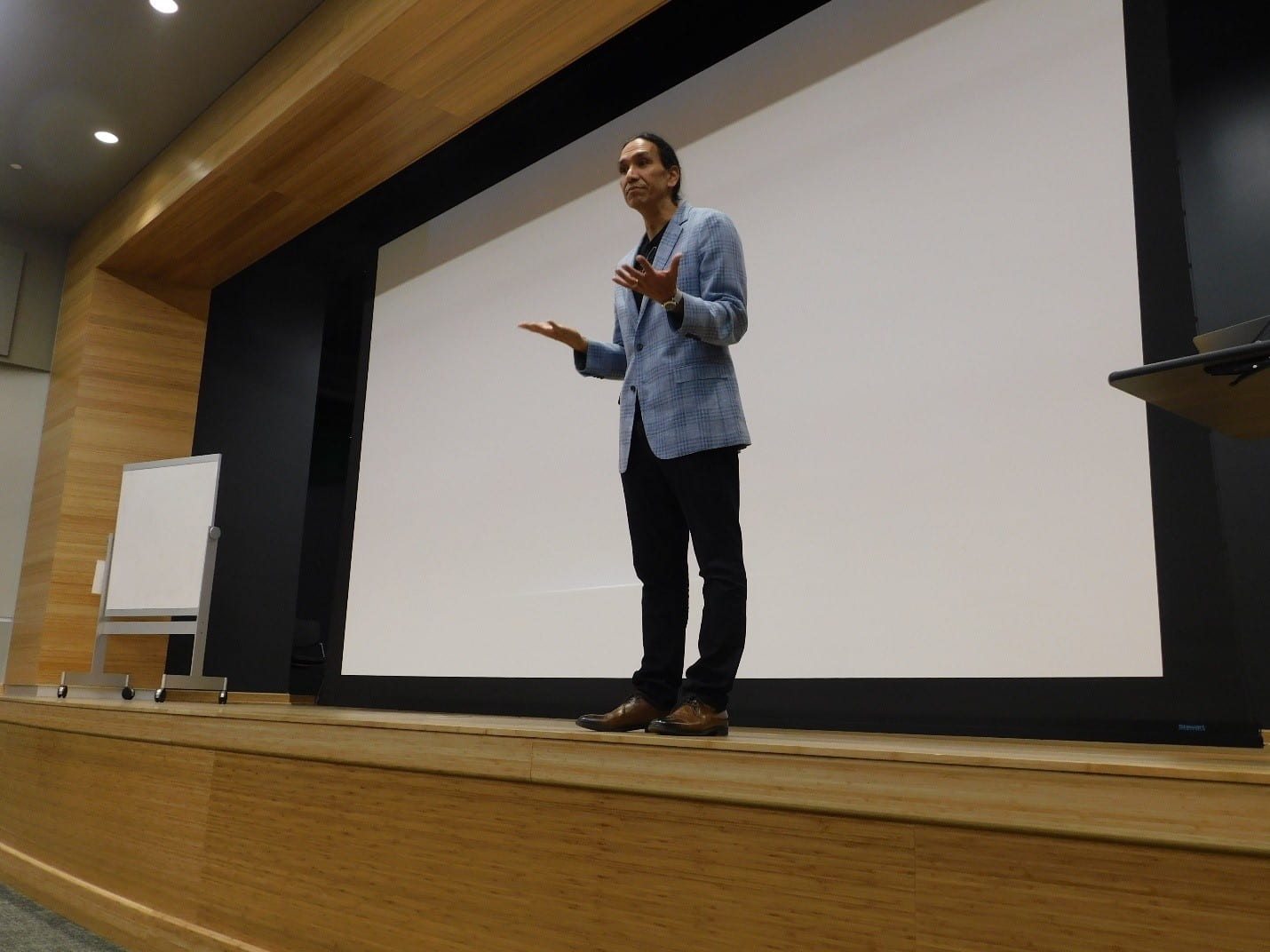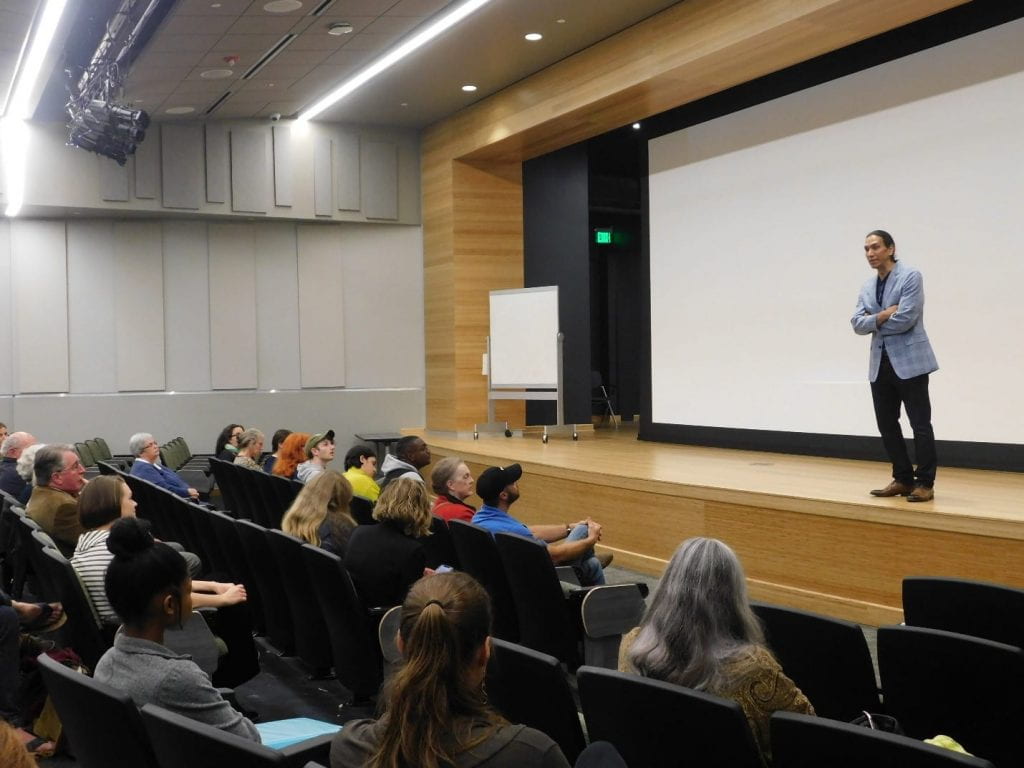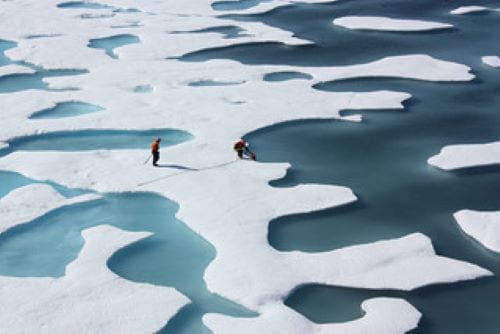On Tuesday, November 5th, the Institute for Human Rights co-sponsored an event alongside Cameroon Humanitarian Relief Initiative to present Herman Cohen (former United States Assistant Secretary of State for African Affairs) and Dr. Fontem Neba (Secretary General of Cameroon Anglophone Civil Society Consortium). During their panel discussion, Cohen and Neba discussed the history of Cameroon, ongoing Anglophone discrimination, and potential resolutions to end the conflict.
As one of the most prominent voices advocating for Anglophone rights, Dr. Neba spoke directly about the atrocities taking place in Cameroon because he was recently detained for nine months after being charged with terrorism. Followed by its establishment as a federation in 1961 and an illegal referendum in 1972 that unified the Francophone majority (~80%) in the north and Anglophone minority (~20%) in the south, Cameroon has endured significant conflict. With political power most harbored in the north, Anglophone Cameroonians have experienced pressure to assimilate and prevention to secede, which led to a civil war in 2016 that has been riddled with human rights violations. More specifically, the Cameroonian military has permeated the south with their influence by committing heinous acts such as destroying Anglophone schools, burning crops, and murdering separatists. As a result, these acts have led to famine, homelessness, and institutional instability throughout the south. Additionally, thousands have been jailed for speaking out against the Franchophone government, while approximately a half-million are internally displaced and another 40,000 have sought refuge in Nigeria.

Cohen then spoke about the crisis in Cameroon by drawing parallels with Eritrea which Ethiopia turned a province before it eventually became an independent country. Although, the international community has been passive about the events unfolding in Cameroon. One exception is none other than the Trump Administration, which signed an executive order last month that effectively removed Cameroon from the African Growth and Opportunity Act. As a result, this action prevents Cameroon from profiting off duty free sales to the U.S. Additionally, south Cameroonians have found an Anglophone ally in Nigeria, making the prior impervious to defeat, while north Cameroonians have been increasingly critical of their government because they are not benefiting from the country’s strong economy. Thus, Cohen argues the U.S. is in the unique position to mediate a resolution. However, the Trump Administration has adopted an isolationist position, which currently places the U.S. distant from potential negotiations. Following, he suggested that the Cameroonian diaspora in U.S. should write letters to their local representatives and urge a cease-fire agreement.
After their presentations, Cohen and Neba took questions from an appalled audience. Addressing a question about the realistic options in our current political environment, Cohen insisted the United Nations Security Council must initiate negotiations and that it must be settled between warring factions; his personal suggestion is that they return to a federation relationship. Additionally, Cohen responded to a question that mentioned the role of former colonial powers, where he mentioned that Great Britain is currently distracted by Brexit, while France, despite reluctance from southern Cameroonians, is taking initiative to mediate the conflict. When asked how geopolitics, namely natural resources, influence this conflict, Neba claimed south Cameroon is rich in cocoa and timber as well as a fevered, educated populace. Although, he argued the region cannot become economically independent because their oil supply, which is on the border, is property of the government. In response, a passionate audience member, and Cameroon native, insisted south Cameroon, much like other small countries, can be independent without an oil industry.

Cohen argued this crisis has potential to become a “Rwanda situation”, but, thankfully, a potential resolution doesn’t require money or soldiers. However, the current trajectory of this crisis primarily lays in the hands of Cameroon (who is persistent on military intimidation), Nigeria (who has enabled separatists in the south), and the U.S. (who has implemented economic sanctions). Thus, these conflicting narratives put human rights advocates in the position to highlight this pressing issue whether it be mentioning it on social media, writing to your local representative, or donating to humanitarian relief.



